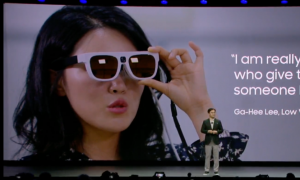Like Jeffrey Epstein, the deceased sex trafficker and child rapist, I was once in John Brockman’s circle of—well, he unfailingly called us “scientists,” though many in the group, a salon known as Edge, have zero training in hard science. The honorific had described Edge’s membership from the start, some 40 years ago, when a small group of technologists set out to reclaim the mantle of “intellectual” from the literary types who they believed had monopolized it throughout the 1970s.
As a book agent, Brockman has a knack for making introductions. During the past month, while Edge has fallen under a pall for its dealings with Epstein, I’ve learned that Brockman connected his “scientists” with high rollers anxious to seem smart, notably Epstein. Brockman didn’t send a single moneybags my way, but participation in Edge conferred on its members a galaxy-brain mystique that money can’t buy. Still, in March 2016, I dropped out, having come to believe that Brockman’s and my politics, and even our moral codes, were incompatible.
My hunch was confirmed later that year, at a tech conference in Oslo, when Dame Marina Warner, the visionary polymath and today the president of the Royal Society of Literature, fielded a disturbing question about pornography from the illustrious philosopher and early Edge member John Searle. I’ll get to that shortly. But broadly, I saw how a radioactive worldview afflicted many men associated with Edge.
So Edge lost its luster. It had always been a sausage party, but in 2016 it came to seem like an orgy dressed up as a scholarly project. There was some foreshadowing to this strange turn in American intellectual history: In a documentary from 1990, Searle quotes, with some approval, a college administrator who described the Free Speech Movement at Berkeley as a “civil rights panty raid.” Indeed—and this I found astonishing—some panty raiders of the 1950s, evidently driven to their rampages by the advent of coeducation, were recruited to become activists for free speech and free love. The intellectual ennobling of sexual violation may have become supercharged then.
Sometime after the panel in Oslo, Searle was dishonorably discharged from his emeritus position at UC Berkeley for allegedly leveraging his branding as a genius to assert droit de seigneur and exploit, abuse, and assault a young woman.
When I signed with Brockman in 2009, I knew the vast majority of Edgies were men. But I presumed things were changing; it wasn’t exactly early days for feminism, and graduate schools across disciplines were packed with women. I even expected I’d find some of my academic heroes on Brockman’s list. Maybe Warner would be there, or the philosopher Elaine Scarry or the sociologist Gina Neff.
Not so. And not only did I not find the theorists I admired most; I found fewer trained academics than I’d been led to expect. There are some bona fide supernovas (I admire especially Lisa Randall and Frank Wilczek), but Edge has also featured robber barons, dilettantes, and has-beens. Several members, including Lawrence Krauss, Michael Shermer, and the late Marvin Minsky, have been credibly accused of and even disciplined for sexual harassment, abuse, or assault. There is also Joichi Ito, the onetime WIRED contributor and former head of the MIT Media Lab, who resigned earlier this month over his ties to Epstein.
A subset of Edge are members of the so-called Intellectual Dark Web, a clique of famous, mostly right-wing thinkers who think of themselves as outlaws. Finally, a few members of Edge are notorious for outright pseudoscience or intellectual dishonesty: Rupert Sheldrake, Marc D. Hauser, Jonah Lehrer.
I pass all this judgment by way of saying that what suffocated me at Edge was the sophistry. In the end, Edge brought to mind Timothy Leary and other swaggering gonzos who for decades got plum academic gigs preaching palaver about their own intellectual superiority, seismic libidos, and sexual prerogatives. “Science” in the service of ideology and exploitation isn’t science at all. It’s closer to Scientology. Phrenology. Or maybe eugenics—Epstein’s own area of keen interest.
… in addition, of course, to child rape. One of Epstein’s many bookish friends recently reported that when serious conversation went over Epstein’s head, he’d demand, “What does that got to do with pussy?!”
But in 2009, knowing very little of Brockman or Edge, I’d sought him out. Like a wits-end Faye Dunaway, come to see a private eye to help get her out of trouble, I was in the midst of a somewhat—not to put too fine a point on it—bleak period in my career and marriage. I was also a few weeks postpartum. I needed to sell a book.
How do male “thought leaders” do it? I mentally riffled through my CV, wondering where I’d gone wrong. I’d been on the internet since the 1970s; had been an original participant at the Berkman Klein Center for Law and Society at Harvard; had a PhD, also from Harvard. I’d been a journalist forever. Some years, I published more than 200 articles. I say all this—yes, sounding like an “I went to Harvard” dick—really to remind myself of my old mental playlist, back in the days when I really thought men like Brockman’s swashbuckling “scientists,” some of whom had joined the Gulfstream set, must have just worked way, way harder than I had.
With the baby strapped to my chest as she often was that year, I checked the acknowledgements sections of books by Clay Shirky and former WIRED editor in chief Chris Anderson. JOHN BROCKMAN. Titans of TED praised this guy. So he was the gatekeeper of fame and fortune—or at least, for me, maybe less consumer debt.
At that first meeting, in a Fifth Avenue office he never failed to mention had once housed the Playboy Club, Brockman said something only slightly lechy about my recently pregnant body. I want to say I was offended. In fact, I was indifferent. He was promising money. For a self-styled Euro libertine, he also had a slight Masshole accent. I asked him about that, and he—disarmingly—talked about being the son of a wholesale flowermonger in Boston. (Brockman did not respond to requests for comment on this story.)
The book was sold in a day, not for much by Brockman’s standards, but good enough for me. I also contributed twice to Edge’s annual anthology, a book in which Edge “scientists” answer big questions like “What to think about machines that think?” Exciting: I was among those described on the 2015 cover as “Today’s Leading Thinkers.” Alas, today’s leading thinkers were not maybe at the height of their powers in the Edge anthologies. In the 2012 book “This Will Make You Smarter,” various household names remind readers, as if we were 10, that scientists do experiments, that we shouldn’t trust quacks, and that we shouldn’t generalize from anecdotes.
Not to generalize from an anecdote, but Epstein’s answers to two Edge questions don’t precisely suggest that he had, as Edgie Martin Nowak put it, “the mind of a physicist.” In response to “What is your law?” (2004), Epstein composed this sub–Vince Lombardi epigram: “Know when you are winning.” Then, in 2005, he predicted: “Consciousness itself will be seen to only be a time sensor, adding to the other sensors of light and space.” Dude.
I never met Epstein; I didn’t know that some Edgies jetted around in the zillion-dollar private plane known as the Lolita Express. But over the years I got eyefuls of what I was excluded from when Brockman, in our meetings, showed me photos of events packed with men he said were billionaires, Nobel laureates, or somehow both. A bowling league for übermenschen, that Edge: Sergey Brin, Yuri Milner, Jacqui Safra, David Brooks, Nassim Nicholas Taleb, Jeff Bezos.
John Searle’s participation in Edge, meanwhile, was the stuff of legend. His contributions to the salon can be found online, but here’s a Searle observation quoted on the Edge site: “There are brute, blind neurophysiological processes and there is consciousness, but there is nothing else.” In one of the periodic showdowns among Edgemen, that line was cited, dismissively, by Steven Pinker, who was responding to archeology professor Steven Mithen’s critique of Pinker’s 1997 argument for a model of the mind as a “system of organs of computation” (Pinker further argued that the internet would “never change the world” because it baffled people). Searle, in counterpoint to Pinker, had asserted that the brain is not computational because there is no “rule-following” in it. Quite an a priori claim, made without reference to so much as an MRI. But it put into place what seems to be Searle’s—and sometimes Edge’s—prime directive. Rules are a fiction; humans are blind brutes. (For what it’s worth, as a humanist, I believe both rules and brutishness are fictions, but one is more humane than the other.)
Edge began as the Reality Club, in 1981, and Searle, Stephen Jay Gould, Isaac Asimov, Daniel Hillis, and of course founder John Brockman attended the early bull sessions. As Brockman put it at the time, “The ethic of [the Reality Club] is ‘thinking smart vs. the anesthesiology of wisdom.’” Sleepy old wisdom was further disparaged, somewhat opaquely, by early member Stewart Brand as, “the old human interest stuff… the same old he-said-she-said, the politics and economics, the same sorry cyclic drama.” The tiresome “old he-said-she-said” was over, per Brand; it was now just he-said, and he said science.
In 2016, I attended the conference in Oslo. There I met Searle. I was briefly impressed. As a philosophy major and student of Richard Rorty in the 1990s, I had been taught that Searle’s 1980 theory of the Chinese Room closed the book on the possibility of thinking machines. In Searle’s view, minds must be made of biological dynamics. Computers, which Searle must have envisioned as non-networked computers of the Commodore era, can only simulate these dynamics.
In hindsight, to reprise this theory in 2016 was laughable, especially given some, let’s call them, changes in computing in the past four decades. The internet long ago turned a computer from a four-walled “room” to an infinite set of portals which lead to billions of biological and language-using minds, with which our computers work in continuous and limitless collaboration. But Searle stuck by his one-liner. Somehow, until that conference, I had never entertained the possibility that Searle might be anything other than a genius.
I didn’t get around to asking Searle about the Reality Club. From the first dinner on, he was uninterruptible. It was one month before the 2016 American presidential election, and everyone at the conference was talking about it, yet Searle only dilated on Trump and sexuality. I was much more eager to talk to Marina Warner, the obvious star of the show. Separately, she and I discussed Brexit, Hillary Clinton, rising autocracy. It became easy to ignore Searle. At last, in my late 40s, I was through being polite to self-styled Great Men.
But there was also … the young woman. Mostly silent, close at Searle’s side, she’d been brought to the conference by Searle. He identified her as a student. She told me she was working on a project on fear and anxiety. She was in her early twenties, I’d guess—about sixty years Searle’s junior. Only a few months later, a young philosopher, Joanna Ong, who worked with Searle, and was also about 60 years his junior, would sue him for sexual harassment and abuse.
Searle’s actions at the conference made me question his intellect as much as his character. How was he seemingly indifferent to Brexit—and Trump’s rise? And for the love of God, how had his thinking about the Chinese Room not evolved one jot in the 40 most consequential years of global digitization? Maybe he wasn’t so much a philosopher anymore, but just another abuser of power, leaning on bygone glory days. (Searle did not respond to multiple requests for comment on this story.)
The conference was nothing like a wash, though. And neither is this tale. That’s because of Warner. She gave one of the greatest lectures on technology I’ve ever heard. A virtuoso multi-discipline approach to the consequences of digital technology on sensory experience (and by extension on the lived experience of being human), the lecture touched on hairlessness—the “glabrous”—the iPhone, Jony Ive, and pedagogy.
With references to Ovid, Kathy Acker, John Keats, and John Locke, Warner argued that the marble-like surfaces of our phones and screens, with their “mortuary or surgical associations,” deprive students of the sensations that make education possible. Along the way she briefly likened the sensory deprivations of the Braun (and Apple) aesthetic—“sterile, hard, trim, and easily wipeable”—to the look of depilated girls in online porn.
Winding confidently through a dozen thorny disciplines, Warner was thinking circles around so many Edgies whose derivative books I’d felt obliged to read. I wondered if others in the room were hearing what I was hearing. Maybe being in the room for Warner’s lecture on the glabrous was like being present in 1980, the very first time 48-year-old John Searle gave his lecture on the Chinese Room—if the Chinese Room had been an actually interesting idea.
After Warner’s talk, Searle, then 84, raised his hand. His young companion sat mum beside him. He jumped right in. About “the disappearance of female pubic hair,” he said, “since it appears a high percentage of internet use is directed at pornography use, and that is a general term for sexuality, are there any studies, what are the effects of this on people?”
In other words, What does that got to do with pussy?!
That’s bad faith, plain and simple. A person aims to phrase as scholarship what’s in fact an infantile and urgent narcissistic project: to gouge as much more sex and power out of this world while he still can. (Ong, Searle’s former assistant, claimed in court documents that Searle watched pornography while at his desk at the John Searle Center for Social Ontology at UC Berkeley.) Perseverating on their sexuality, their superiority, and their sturdy overman wish to be immortal, Edge types can start espousing sexual entitlement as if their grave mistreatment of others weren’t predation but heroism.
Meanwhile, other ideas get sidelined, denied tenure, disinvited—ideas like politics, economics, or the internet, ideas maybe somewhat more to the point in 2016, when the English-speaking world was undergoing a series of catastrophic events it may never recover from.
As stories like Joanna Ong’s make clear, young female academics often get silenced, or converted into objects of desire, by overbearing dons. When middle-aged, even the most accomplished among us get pushed out of jobs, book contracts, awards. Maybe we’re no longer sexually desirable; maybe we don’t belong among the carousers who are our age; or maybe we just seem like scolds. But our midlife crises come when our careers stall and we conclude we just weren’t suited for the life of the mind. Civilization is thus deprived of intellectual work by half the population.
But Warner was perfect.
“It is just not terribly good for women to shave their pubic hair … It’s rather the same reason as not having eyelashes,” she said, keeping to the topic of female health and not straying to male desire.
“I can be more explicit if you want, but it risks becoming rather alluring.”
Hairlessness, in Warner’s view, is dangerous for women and alluring … to men like Searle. Just like that, her answer redirected the audience’s attention to her work, while giving no quarter to Searle’s prurience.
I propose that in future encyclopedias of philosophy, an entry on Warner’s Glabrous should sit alongside—no, replace—the one on the obsolete theory of the Chinese Room. Along with the steady exposure of sex offenders and abuse enablers in the academy, Warner restored my hope that the 21st century can be different, that sterile ideas by misogynists need not salt the intellectual earth, and that the life of the mind need not always be dominated by the sophistry of panty-raiders.
More Great WIRED Stories
- Jack Conte, Patreon, and the plight of the creative class
- What happened to Urban Dictionary?
- Six reasons to ditch Chrome for the Vivaldi browser on Android
- How tech firms like Uber hide behind the “platform defense”
- Uncertainty isn’t always a problem—it can be the solution
- 👁 How do machines learn? Plus, read the latest news on artificial intelligence
- 💻 Upgrade your work game with our Gear team’s favorite laptops, keyboards, typing alternatives, and noise-canceling headphones



